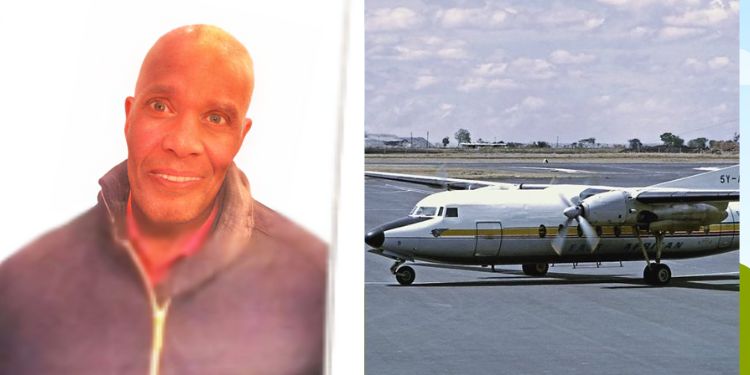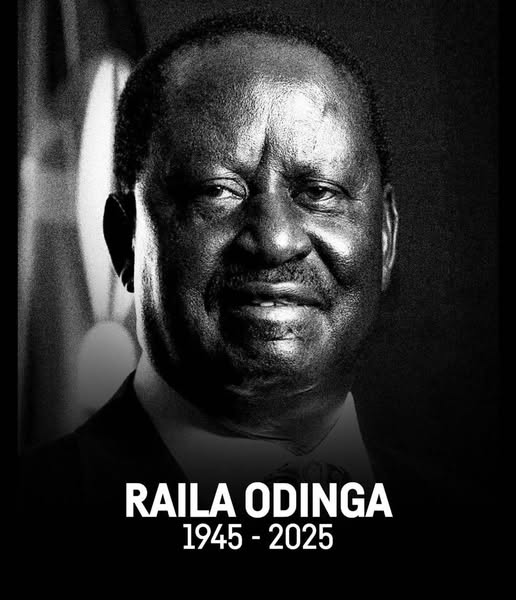Culture, Society & Insights
Bruce Melodie: Rwanda’s Afrobeat Star on the Rise
Bruce Melodie’s passion for music ignited in school, inspired by legends like Koffi Olomide and Aaliyah, whose storytelling and emotive performances captivated him. His big break came in 2013 with “Abanyakigali,” a song that resonated with Rwandan youth, establishing him as a rising star. The infectious melody and relatable lyrics turned it into a local anthem, reflecting the aspirations of a generation.

Bruce Melodie blends Afrobeat, R&B, and Rwandan sounds to rise as a top East African artist, with hits like “Abanyakigali” and a passion for youth empowerment.
In the vibrant heart of Kigali, Rwanda, Bruce Melodie has emerged as a musical force, captivating audiences across East Africa with his distinctive blend of Afrobeat, R&B, and traditional Rwandan music.
Early Life and Musical Roots
Born Bruce Itahiwacu on February 2, 1996, Bruce grew up in a modest household where music wasn’t just entertainment—it was a way of life. His father recognized his musical potential early, encouraging him to explore the rich traditions of Rwandan music.
Bruce’s passion ignited during his school years, inspired by musical legends like Koffi Olomide and Aaliyah, whose emotive storytelling and soulful melodies shaped his early artistic vision.
Breakthrough with “Abanyakigali”
In 2013, Bruce Melodie released “Abanyakigali”, his breakout single that resonated deeply with the urban youth. The track’s infectious beat and relatable lyrics turned it into a local anthem, earning him widespread recognition in the Rwandan music industry.
Mainstream Success: “Ikizere” and Beyond
By 2015, he had cemented his place as a rising star with “Ikizere,” a song that showcased his ability to fuse modern rhythms with traditional Rwandan themes. The track gained national airplay and set the stage for his future albums.
Bruce went on to release “Mister 100” and “Intashyo”, albums that reflect his artistic growth, versatility, and lyrical depth. These albums solidified his reputation as one of the most innovative East African musicians.
Hit Songs and Awards
Tracks like “Sina”, “Ntakibazo”, and the more recent “Ndi Uwo” not only topped local charts but also won Bruce major accolades. He received the Kigali Fashion Week Award for Best Musician and secured multiple nominations at the Salax Awards, Rwanda’s top music honors.
Philanthropy and Youth Empowerment
Beyond the stage, Bruce is a passionate advocate for youth empowerment. He partners with NGOs to promote education and health in underserved communities. His social projects often focus on providing access to music education and mentoring programs for aspiring young artists.
Facing Industry Challenges
The Rwandan music industry faces several hurdles—including limited global exposure and tough competition—but Bruce Melodie continues to thrive. He embraces digital platforms and uses social media to grow his fanbase globally, making him one of the few Rwandan artists with a significant international reach.
Looking Ahead: Bruce Melodie’s Future in East African Music
Bruce’s music continues to evolve, with new tracks exploring personal stories, social themes, and Pan-African identity. His sound is a cultural bridge—blending Rwandan roots with Afrobeat, R&B, and contemporary rhythms.
As he carves out a place among the giants of East African music, Bruce Melodie stands as a symbol of resilience, creativity, and cultural pride. His musical journey is far from over—and fans across the continent are eager to witness what comes next.
🔑 SEO Keywords Used:
- Bruce Melodie
- Rwandan musician
- East African music
- Afrobeat and R&B
Celebrities, Creatives & Public Figures
WPP-Scangroup Names Owusu-Nartey as CEO
After a turbulent financial year and leadership changes, WPP-Scangroup is betting on Owusu-Nartey’s experience to steady its East African operations. The Ghanaian executive is the first woman from West Africa to lead the Nairobi-listed firm.

Kenya’s WPP-Scangroup hires Akua Owusu-Nartey as Group CEO effective Nov 17 2025, replacing Patricia Ithau after weak results.
Nairobi, Oct 22 — WPP-Scangroup Plc, Kenya’s only listed marketing and communications conglomerate, has appointed Akua Brayie Owusu-Nartey as Group Chief Executive Officer and Executive Director, effective Nov. 17 2025, as the firm moves to restore growth after a series of financial setbacks and client losses.
The appointment, announced by the board on Oct. 21, comes three months after the exit of Patricia Ithauwho stepped down in July at the end of her contract. Ithau, a former Unilever and L’Oréal executive, had led the Nairobi-based group since 2022.
“Akua brings a deep understanding of the African communications landscape and strong credentials in agency leadership,” the board said in a statement posted on the Nairobi Securities Exchange website.
A Strategic Appointment
Owusu-Nartey currently serves as Chief Executive Officer of Ogilvy Africa, a key subsidiary of WPP Plc, which holds a controlling stake in Scangroup. She will retain oversight of Ogilvy’s continental operations during a transition period, according to CEO Magazine Uganda.
Her appointment follows months of leadership uncertainty after Ithau’s departure, during which Chief Operating Officer Miriam Kaggwa served as interim CEO. Kaggwa will continue to support the transition until the handover in November.
In a brief comment to The Reporter Ethiopia, a WPP regional spokesperson said the new leadership “signals renewed confidence in Kenya’s advertising market, which remains one of Africa’s most dynamic.”
Financial Strain and Market Challenges
WPP-Scangroup has been struggling to reverse a downturn that began in 2023. The company posted a KSh 507.6 million ($3.9 million) loss in 2024, compared with a profit of KSh 133.3 million ($1.0 million) the previous year, citing weak client spending and foreign-exchange losses, according to Business Daily Africa.
The loss of key accounts, including Airtel Africa, eroded earnings across its advertising and media subsidiaries. Analysts note that intensified competition from regional independents and new global entrants has further compressed margins.
“The company has to rebuild trust with clients and staff,” said Paul Mwangi, an analyst at Standard Investment Bank in Nairobi. “If the new CEO can stabilise revenues and reinvigorate creative output, Scangroup can recover its edge.”
What’s Next for WPP-Scangroup
Owusu-Nartey, a Ghanaian-born executive and one of Africa’s most recognised advertising leaders, previously served as Regional Managing Director for Ogilvy West Africa. She is credited with expanding Ogilvy’s footprint in Nigeria, Ghana and Côte d’Ivoire, earning multiple Cannes Lions and Loeries Africa awards.
In an internal memo seen by Capital FM Kenya, she said her immediate priorities include “rebuilding client confidence, enhancing digital capabilities, and unlocking value across our East African markets.”
Industry peers welcomed the appointment. “Her leadership brings credibility and continuity at a time when African marketing groups face global headwinds,” said Violet Kuria, chairperson of the Association of Practitioners in Advertising (APA-Kenya), in an interview with Addis Standard.
Regional Significance
The leadership change underscores Kenya’s strategic role in WPP’s Africa strategy. Nairobi hosts the hub offices for more than ten WPP agencies covering markets from Ethiopia to the Democratic Republic of Congo.
“WPP-Scangroup’s performance acts as a barometer for ad-spend trends in Sub-Saharan Africa,” said Stephen Mutoro, CEO of the Consumers Federation of Kenya, speaking to The EastAfrican. “Global clients are watching how quickly the company can adapt to digital transformation.”
Shares of WPP-Scangroup (Stock: SCAN:NAIROBI) have remained largely flat this quarter, trading around KSh 3.10 ($0.024), compared with a year-to-date high of KSh 4.25 ($0.033), according to Nairobi Securities Exchange data.
Outlook
The turnaround plan hinges on growing digital-media, data-analytics, and public-relations revenue streams. Analysts expect restructuring costs in the short term but improved profitability by late 2026 if the strategy gains traction.
Owusu-Nartey’s elevation also adds to a growing list of female chief executives across major African corporations. Her challenge will be balancing expectations from London-based WPP with local market realities in Nairobi, Lagos and Addis Ababa.
“This is a defining moment for Scangroup,” said a senior WPP Africa executive who asked not to be named. “Akua’s leadership will determine whether Nairobi remains the creative capital of East Africa.”
Celebrities, Creatives & Public Figures
Captain John Kiniti: Kenya’s First African Pilot
In January 1977, Kiniti defied orders and flew three aircraft out of Tanzania, securing Kenya’s first national airline fleet. His courage transformed a political standoff into a moment of national triumph.

Discover the inspiring story of Captain John Kiniti, Kenya’s first African pilot whose daring act helped found Kenya Airways.
Captain John Guy Kiniti: The Aviator Who Built Kenya Airways
The name Captain John Guy Kiniti holds a special place in Kenya’s aviation history. When news broke on October 4, 2025, that he had died after a short illness, tributes poured in from across Africa. He was more than a pilot — he was a pioneer who helped lift a nation’s dreams into the skies.
Early Life and Rise in Aviation
Born in Kiambu County, Kiniti came from humble beginnings but aimed high from a young age. He joined East African Airways (EAA) in the 1960s, becoming the first African commercial pilot in the region. At a time when aviation was dominated by expatriates, he broke barriers and inspired young Africans to dream of the cockpit.
Kiniti mastered aircraft like the Douglas DC-9 and soon became an instructor and mentor. Colleagues admired his calm focus and discipline. Over time, he logged tens of thousands of flight hours and trained dozens of local pilots who later joined Kenya Airways.
“Captain Kiniti was more than a pilot—he was an institution,” said a former colleague during his funeral at Lang’ata Cemetery.
The 1977 Escape from Dar
In January 1977, the East African Community (EAC) collapsed, leading to the breakup of East African Airways. As political tensions rose, aircraft belonging to the airline were grounded in Dar es Salaam, Tanzania. The Kenyan government feared losing its share of planes to regional politics.
At the airport, four aircraft sat idle: two DC-9 jets and two Fokker 27s. Tanzanian officials refused to refuel three of them, intending to block their transfer to Kenya. Kiniti, commanding one DC-9 that still had fuel, quickly formed a daring plan.
According to Yesterday’s Airlines, he persuaded ground staff to siphon fuel from his plane to the two Fokkers. When Tanzanian officers returned from a football match, three aircraft had already taken off for Nairobi. Flying low over the Indian Ocean, Kiniti switched off his radio and guided the planes safely home.
Those aircraft became the founding fleet of Kenya Airways, officially launched on January 22, 1977. Its maiden flight took place on February 4, 1977. That bold escape secured Kenya’s aviation future.
Years of Service and Mentorship
After that heroic mission, Kiniti continued flying for Kenya Airways. He served on routes across Africa, Europe, and Asia, earning a reputation for precision and reliability. Later, he transitioned into a flight instructor’s role, where his leadership shaped the airline’s next generation of aviators.
He retired in December 2015, ending nearly four decades of service. Even in retirement, he remained a reference point for professionalism. Many Kenyan pilots credit him for the discipline and mentorship that defined their careers.
A Legacy that Endures
When Captain Kiniti passed away at 88, the Kenya Civil Aviation Authority (KCAA) called him a “hero of the skies.” He is survived by his wife, Halima Sulehka Kiniti, and their children, including Capt. Judy Wanjiku, who followed in his footsteps.
Kiniti’s story reflects the birth of modern Kenyan aviation. His bold act in 1977 ensured that Kenya Airways began with aircraft, identity, and pride. Without his decision, the airline might not have survived its founding crisis.
“He didn’t just fly planes; he flew Kenya’s dream,” said one aviation historian.
Today, every Kenya Airways flight carries part of his legacy. The courage, skill, and patriotism that defined Captain John Kiniti continue to inspire pilots across Africa.
Celebrities, Creatives & Public Figures
Raila Odinga’s Passing Leaves Kenya at a Political Crossroads
Known fondly as Baba, Odinga spent decades fighting for multiparty democracy, fair elections, and national unity. His death leaves a leadership vacuum in Kenya’s opposition and raises questions about the future of the Orange Democratic Movement.

Kenya mourns opposition leader Raila Odinga, who died aged 80 in India. His death reshapes the country’s politics and democratic legacy.
By Charles Wachira
NAIROBI/, Oct 15 (BW Africa) –Raila Amolo Odinga, Kenya’s enduring opposition leader and five-time presidential contender, has died aged 80 while receiving treatment at an Ayurvedic eye hospital in Kerala, India. His family confirmed he collapsed during his morning walk on the hospital’s grounds, succumbing to cardiac arrest, according to Reuters.
Odinga, affectionately known as “Baba”, was a towering figure in Kenya’s political landscape — a reformist who spent decades challenging entrenched power and demanding constitutional change. His death ends one of Africa’s most resilient political careers and leaves Kenya grappling with what comes next for its opposition and democracy.
From Detention to Democracy
Born on January 7, 1945, in Maseno, western Kenya, Odinga was the son of independence hero and Kenya’s first vice president, Jaramogi Oginga Odinga. Following the 1982 coup attempt against President Daniel arap Moi, Raila was detained without trial for nearly a decade — an experience that hardened his resolve to fight for multiparty democracy.
“Those who imprisoned me thought they could silence me,” Odinga said in a 1992 BBC interview. “But what they did was strengthen my belief that Kenya must belong to all its people.”
His release in 1991 coincided with the return of multiparty politics, a reform for which he was instrumental. That year, Kenya repealed the Section 2A clause of its constitution, reintroducing pluralism. Odinga quickly became the face of political resistance, steering the Forum for the Restoration of Democracy (FORD) alongside his father.
The Reluctant Statesman
Odinga’s political life was defined by both triumphs and betrayals. As Prime Minister (2008–2013) under the power-sharing government with Mwai Kibaki, formed after the 2007–08 post-election violence, he worked to restore stability to a fractured nation.
Despite his achievements, he never captured the presidency. Odinga ran unsuccessfully in 1997, 2007, 2013, 2017, and 2022. Each defeat was clouded by accusations of electoral malpractice. His supporters repeatedly filled the streets demanding justice, while Odinga’s rallies — known for their fiery rhetoric — became stages of national catharsis.
“The figures announced are null and void,” he told supporters after the 2017 election. “We will not be sworn in by the court of public opinion, but by truth and justice.”
The Handshake and a New Political Tone
Perhaps the most surprising turn in his career came in 2018 when Odinga and then-President Uhuru Kenyatta announced a truce — famously called “The Handshake.” The move, covered by The Nation, was hailed as a moment of national reconciliation but also drew skepticism.
To his critics, it was political survival; to supporters, it was proof of maturity. Odinga insisted it was about Kenya’s unity: “Elections come and go, but Kenya must endure.”
The partnership paved the way for the Building Bridges Initiative (BBI) — a controversial reform package that sought to amend Kenya’s constitution to promote inclusivity. Though the Supreme Court later struck it down, BBI reflected Odinga’s lifelong mission: to remake the state in the image of fairness.
Ailing but Unbowed
In recent years, questions had surfaced about his health. Local outlets like The Standard reported that Odinga sought treatment in India for eye complications in 2023, though his team denied any serious illness.
Even so, he remained active. As recently as September 2025, Odinga was seen addressing rallies and pushing for electoral reforms. “The day I decide to go back to Bondo, I will not seek permission from anyone,” he declared during a public gathering, dismissing retirement speculation.
Kenya’s Political Earthquake
His death leaves a vacuum not only within the Orange Democratic Movement (ODM) but across the political spectrum. President William Ruto, who had once been Odinga’s fiercest rival, paid tribute on X, saying: “Kenya has lost a patriot, a democrat, and a man who gave his life to public service.”
Former President Uhuru Kenyatta echoed that sentiment, calling him “a brother-in-arms in the struggle for a just Kenya.”
Analysts say Odinga’s passing could redraw Kenya’s political alliances. “No one commanded the opposition like Raila Odinga,” noted political scientist Macharia Munene in an interview with Citizen TV. “Without him, the opposition risks fragmentation.”
The End of an Era
Odinga’s imprint on Kenya’s democracy is indelible. His role in the adoption of the 2010 Constitution, the strengthening of devolved governments, and advocacy for transparent governance reshaped national politics.
He is survived by his wife, Ida Odinga, and their children, including Winnie Odinga, who followed him into politics.
To many Kenyans, Odinga was not just a politician — he was the conscience of a nation still defining its democracy. “I don’t fight for power,” he once said in a 2014 interview with Al Jazeera. “I fight for justice.”
His death, like his life, forces Kenya to confront its unfinished democratic journey — one that now must continue without its most relentless agitator.
-

 Politics, Governance & Regional Affairs6 days ago
Politics, Governance & Regional Affairs6 days agoRaila Odinga’s Death Tests ODM Unity
-

 Celebrities, Creatives & Public Figures7 days ago
Celebrities, Creatives & Public Figures7 days agoCaptain John Kiniti: Kenya’s First African Pilot
-

 Regional Security & Peacebuilding7 days ago
Regional Security & Peacebuilding7 days agoKabila’s Nairobi Meeting Deepens DRC–Kenya Rift
-

 Banking, Finance & Economic Policy4 days ago
Banking, Finance & Economic Policy4 days agoMacharia to Lead Sidian Bank’s Revival
-

 Celebrities, Creatives & Public Figures5 days ago
Celebrities, Creatives & Public Figures5 days agoWPP-Scangroup Names Owusu-Nartey as CEO
-

 Banking, Finance & Economic Policy6 days ago
Banking, Finance & Economic Policy6 days agoKenya Banks Poised for Strong Q4 Rebound
-

 Human Rights & Social Justice7 days ago
Human Rights & Social Justice7 days agoRwanda Targets Exiled Critics with Sanctions
-

 Banking, Finance & Economic Policy5 days ago
Banking, Finance & Economic Policy5 days agoEthiopia Caps Foreign Bank Ownership at 49%










